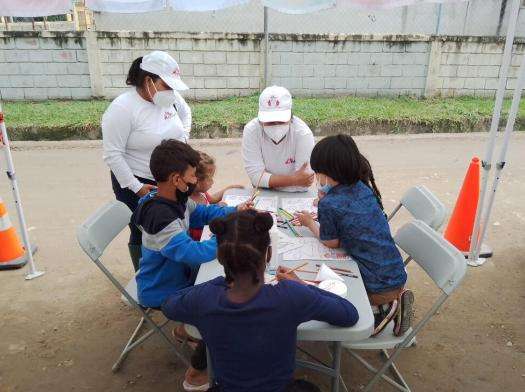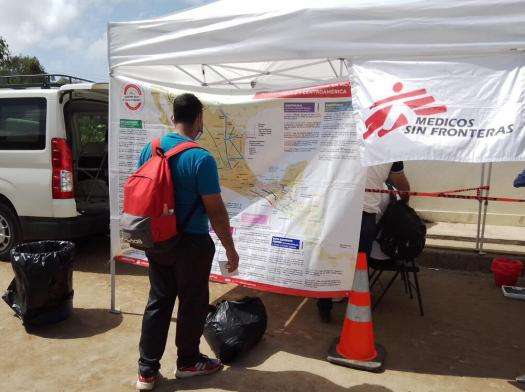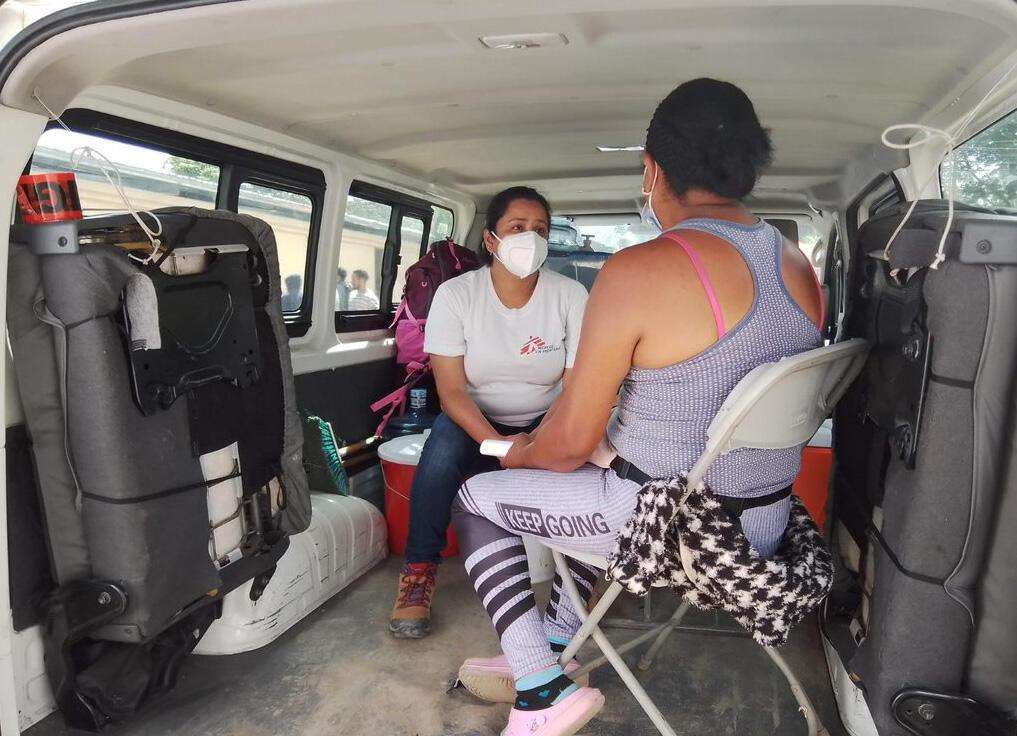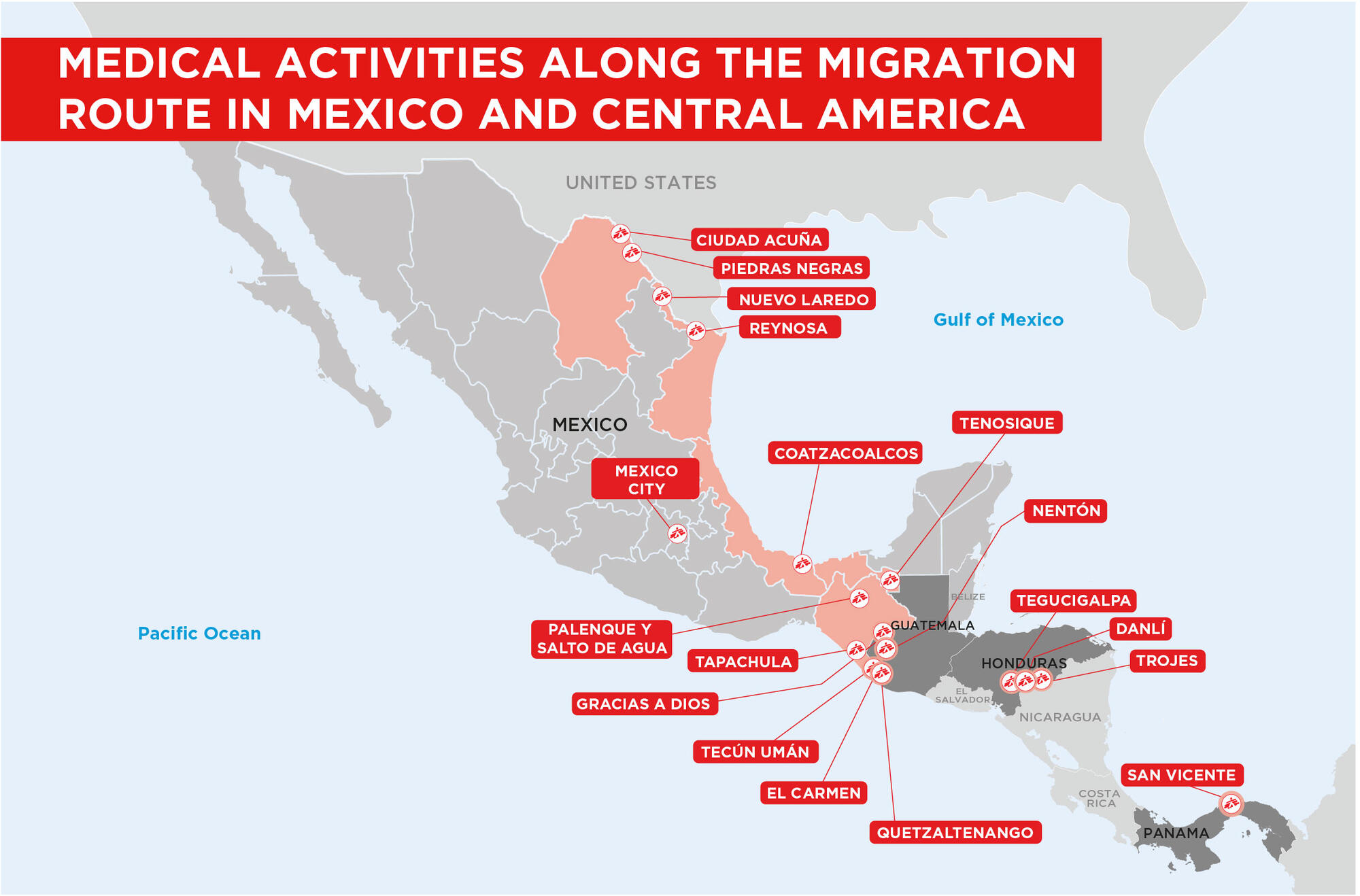The land route between Central America and the United States (US) is one of the most dangerous in the world for migrants. Leaving their countries in search of safety and well-being, what they find on the journey through the dense Darién jungle in southern Panama, the northern triangle of Central America, and at Mexico’s border with the US is quite the opposite: a succession of deadly risks and hardships that put their lives at constant risk.
Despite these dangers and restrictive and punitive government migration policies, increasing numbers of people are attempting this treacherous journey. In response, Doctors Without Borders/Médecins Sans Frontières (MSF) has deployed 18 teams across the region to provide medical humanitarian care to people in need.
Inhumane migration policies
The COVID-19 pandemic served as an excuse for the US to invoke Title 42, a public health rule that allowed for the rapid expulsion of migrants, and effectively shutting down the US southern border to asylum seekers. This damaging policy has resulted in nearly two million expulsions, leaving people stranded in dangerous Mexican border cities or on deportation flights back to the countries they fled.
It’s not the only such policy in the region. In southern Mexico, daily raids and checkpoints set up by immigration officials serve as a barrier to people traveling north. And for months, the Honduran government maintained a fine of more than US$200 for migrants who entered the country without documents in order.
These policies haven’t just failed to stop the flow of migration in the region. In addition to violating human rights and denying vulnerable people access to care, they also push migrants into the hands of criminal networks operating throughout the region. Migration has become a multi-million-dollar business, where kidnappings, robberies, extortion, and human trafficking are protected by the impunity guaranteed by the inaction and even complicity of some officials.
Meanwhile, the number of people undertaking the journey against all odds continues to grow. According to a recent report by the International Organization for Migration (IOM), from January to April 2022, the number of encounters between migrants and authorities at the land border of the southwestern US was 46 percent higher than in the same period last year. According to figures from the UN Refugee Agency (UNHCR), Mexico is the third country after Germany and the US with the highest number of asylum seekers. In 2021 this figure exceeded 130,000 requests, according to Mexican authorities.
As a result, migration on the continent has become a protracted humanitarian crisis. In addition to the impacts of administrative barriers and widespread violence, people traveling through the region face a lack of access to basic needs like food, clothing, shelter, health, and education. Under these conditions, the physical and emotional well-being of migrants is severely affected.
Responding to needs in the region
At the San Vicente migration station in Panama, MSF teams provide general health care, nursing, and mental health services to people who survive the deadly passage through the Darién jungle, a nearly 2,000 square mile region between Colombia and Panama that separates South America from Central America.
One such survivor is John, a Cameroonian man who ate only peanuts for much of his journey. Fortunately, the hardships he faced only left him with mosquito bites and body aches, which prompted him to seek medical advice. But some of his companions didn’t survive. “I saw people dying and I couldn't help them,” he said.

John spent three days in the Darién jungle eating nothing but peanuts.
Panama 2022 © Maria Fernanda Pérez Rincones/MSF
From January to June of this year, MSF teams provided more than 54,000 general health consultations, 5,500 individual mental health consultations, and 5,000 social work orientations along the migration route. We also distributed more than 23,500 hydration and hygiene kits and reached nearly 65,000 people through health promotion activities.
“The main physical ailments our teams see during consultations are respiratory, gastrointestinal, and skin conditions, which are mainly due to the precarious conditions in which people live,” said Helmer Charri, MSF deputy head of mission in Mexico. “In addition, people suffer from muscle pains, foot injuries, and physical trauma due to long walks along the route.”

MSF community team members Nusli Carranza and Paola Alvarez led children through a drawing activity.
Honduras 2022 © Esteban Montaño/MSF

A man takes a last look at a map in eastern Honduras before continuing north.
Honduras 2022 © Esteban Montaño/MSF
Constant fear and uncertainty
People migrating to the US come from diverse backgrounds. While they are all vulnerable on their journey, the impact of migration is most profound on children, unaccompanied minors, pregnant people, older people, LGBTQI+ people, indigenous and non-Spanish-speaking people, extracontinental migrants, and survivors of sexual violence.
“Usually, the violence most people have experienced is at their place of origin,” said Dr. Reinaldo Ortuno, MSF medical coordinator in Mexico and Central America. “However, it persists along the route, and generates serious implications on their mental health. In addition, the uncertainty of their situation and family separation, among other factors, influence the development of emotional responses such as anxiety, stress, excessive fear, constant worry and, in severe cases, psychological disorders.”
Barbara left Venezuela with her husband and six-year-old son and took a dangerous path across the border between Nicaragua and Honduras to avoid border control officials. At an MSF mobile clinic in Danlí, eastern Honduras, she waited for her husband to be treated for the flu, which he picked up over the last days of the trip. Her son takes advantage of the space to socialize with other children who are also on their way north.
“We want to get to the US to work and to be able to pay for the lung surgery my little boy needs to improve his health,” said Barbara. “I don't understand why they make it so difficult for us. All we are looking for is a better life.”





